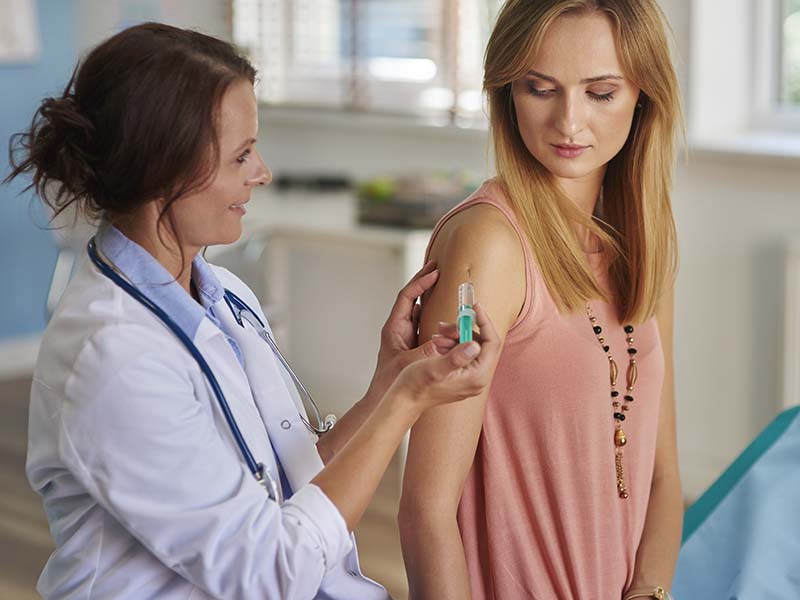Vaccinations aren’t just for kids. Adults should also routinely be immunized to protect against certain ailments. When and how often you should get vaccinated depends on the disease as well as a patient’s risk factors. Here, a breakdown of certain adult vaccinations that are recommended:
Influenza:
“Everyone should get a flu shot,” says Dr. Paa-Kofi Obeng, an internist with Nansemond Suffolk Family Practice. Children and adults alike should get a flu shot annually to protect against catching the flu or minimize its symptoms and slow the spread of the virus. The flu vaccine is especially vital for pregnant women, who could face complications if they get the flu.
Tetanus/Tdap:
This immunization protects against tetanus, diphtheria and pertussis (or whooping cough). Individuals typically get this booster once as a child, and then should get the tetanus and diphtheria portion again as an adult vaccination once every ten years after the age of 18. Pregnant women should also receive a Tdap vaccine. Whooping cough can be very serious if passed onto babies and young children.
Zoster (Shingles):
The shingles vaccine is recommended for those primarily 60 years of age and older as well as those with a weakened immune system. Anyone who has had chicken pox as a child is at risk of contracting shingles because the virus never really goes away; it just lies dormant on nerve cells with the potential to reactivate as shingles, which can be painful. This is
a one-time adult vaccination.
Varicella (Chicken Pox):
Any patient who hasn’t been exposed to chicken pox as a child should receive the varicella (chicken pox) vaccine. Chicken pox is highly contagious, and, while most cases are mild, in some cases, catching the virus can be potentially serious, even life-threatening. The risk of serious, life-threatening complications is greatest among infants, adults, and people with weakened immune systems.
Pneumococcal:
Senior citizens 65 or older in good health should get this booster to prevent against pneumonia, meningitis, and bloodstream infections. This is a one-time adult vaccination.
Human papillomavirus (HPV):
Teens and young adults should receive this vaccination to prevent HPV, a sexually-transmitted disease. It is recommended for males ages 13-21 and females aged 13-26.
Other adult immunizations to consider include MMR to protect against measles, mumps, and rubella, particularly for those born after 1957 who did not receive the booster as a child; and hepatitis, especially hepatitis A for those who travel to high-risk areas of the world, and hepatitis B for health care workers. The CDC has issued an adult immunization schedule.
Despite these immunization recommendations, not everyone is getting them regularly, either because they forget in their busy lives, because they are afraid of needles or potential side effects, or because they feel that other people who get vaccinated will protect them, which is dubbed “herd immunity” in public health. But that isn’t wise.
“I am a firm believer in vaccinations, and that the good outweighs the bad,” says Dr. Obeng. “Vaccinations help to prevent potentially deadly diseases. It is important to try your best to get vaccinations. It is a benefit for everyone over all.”







